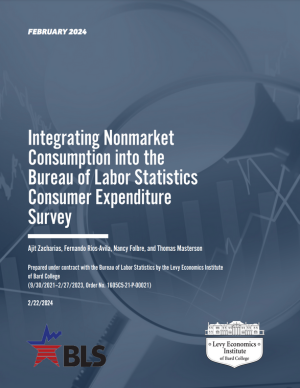
Publications
Public Policy Brief No. 127
| November 2012
Fiscal Traps and Macro Policy after the Eurozone Crisis
The United States must make a fundamental choice in its economic policy in the next few months, a choice that will shape the US economy for years to come. Pundits and policymakers are divided over how to address what is widely referred to as the “fiscal cliff,” a combination of tax increases and spending cuts that will further weaken the domestic economy. Will the United States continue its current, misguided, policy of implementing European-style austerity measures, and the economic contraction that is the inevitable consequence of such policies? Or will it turn aside from the fiscal cliff, using a combination of its sovereign currency system and Keynesian fiscal policy to strengthen aggregate demand?
Our analysis presents a model of what we call the “fiscal trap”—a self-imposed spiral of economic contraction resulting from a fundamental misunderstanding of the role and function of fiscal policy in times of economic weakness. Within this framework, we begin our analysis with the disastrous results of austerity policies in the European Union (EU) and the UK. Our account of these policies and their results is meant as a cautionary tale for the United States, not as a model.
Our analysis presents a model of what we call the “fiscal trap”—a self-imposed spiral of economic contraction resulting from a fundamental misunderstanding of the role and function of fiscal policy in times of economic weakness. Within this framework, we begin our analysis with the disastrous results of austerity policies in the European Union (EU) and the UK. Our account of these policies and their results is meant as a cautionary tale for the United States, not as a model.
Download:
Associated Program:
Author(s):
Related Topic(s):
Budget Control Act
Budget sequester
Central bank policy
Chartalism
European Central Bank (ECB)
Eurozone
Eurozone debt crisis
Financial fragility
Fiscal austerity
Fiscal cliff
Fiscal trap
Macroeconomic policy
Metallism
Tax policy
US economic policy

